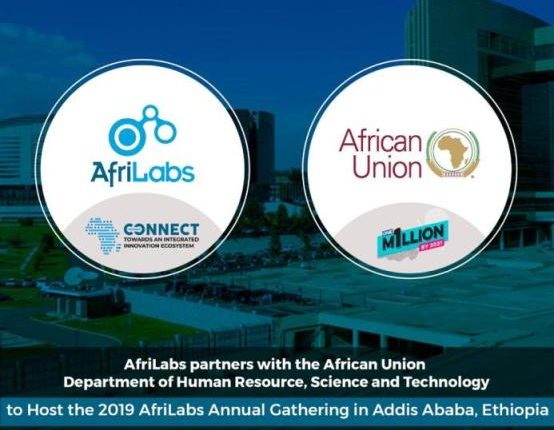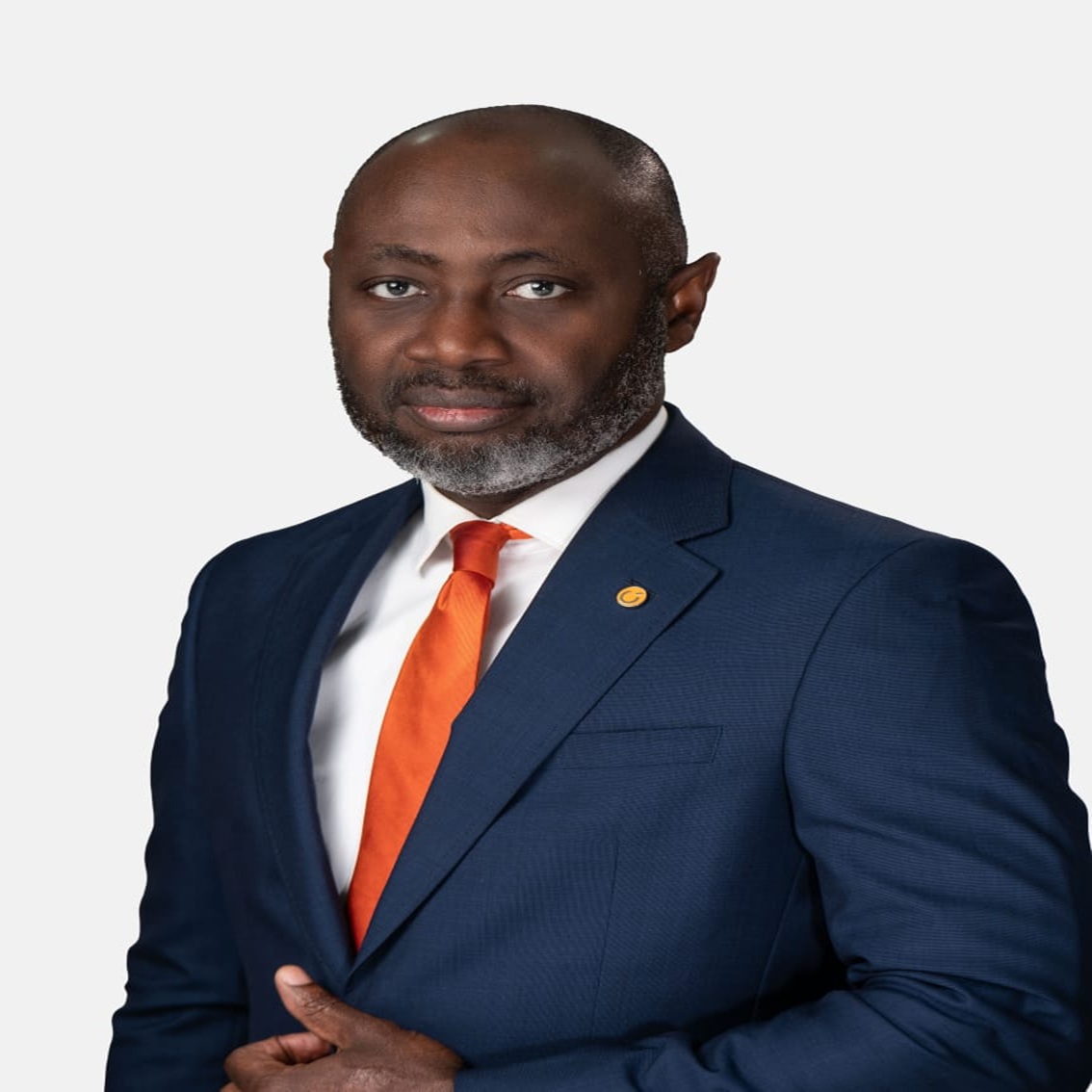News
African Union Backs AfriLabs’ 2019 Annual Gathering in Ethiopia

AfriLabs, the largest pan-African network of 158 technology and innovation centers in 45 African countries has announced its partnership with the Division of Human Resource and Youth Development in the Department of Human Resource, Science and Technology within African Union Commission to host the 2019 AfriLabs Annual Gathering.
Every year, AfriLabs organises its Annual Gathering to provide a unique opportunity for tech and innovation hubs within the AfriLabs network and other stakeholders in the African innovation ecosystem like local innovators (entrepreneurs), corporates, investors, academia and developmental agencies to convene, network and share knowledge.
The fourth edition of the AfriLabs Annual Gathering themed ‘Connect: Towards an Integrated Innovation Ecosystem’ is scheduled to take place from the 28th – 30th of October 2019. The event will focus on building collaborative and sustainable systems and creating synergies that will pave the way for the African innovation ecosystem to thrive and contribute to the social and economic development of the African continent.
“This is a significant partnership that launches a deeper engagement between the African Innovation and Entrepreneurship Ecosystem and African member states, Regional Economic Communities (RECs) and other multilateral development organisations working with the African Union Commision and collaboratively moving towards our common vision of an integrated and prosperous African continent.
“We are calling on other partners and ecosystem stakeholders interested in contributing to the social and economic development of our continent to work with us and our community of innovation hubs across the continent to achieve a successful Annual Gathering 2019 and ultimately our vision for Africa said Executive Director, AfriLabs, Anna Ekeledo.
Also speaking on the collaboration, Commissioner of Human Resources, Science and Technology, H.E Prof. Sarah Anyang Agbor , said, “As we make concerted efforts to realising the development of the continent under the forward-looking 1 Million by 2021 Initiative, it gives us great pleasure to partner with AfriLabs on providing a unique opportunity for tech and innovation hubs. The efforts to effectively harness Africa’s demographic dividend can only be accelerated in collaborating with dedicated stakeholders. We remain grateful to these partners who are as invested as us in ensuring that the potential of youth on the continent is realised by tapping into these areas which recognise the importance of digital skills as an avenue to achieve sustainable economic development”.
This collaboration is part of a broader agreement with the HRST Department to support the ‘1 Million by 2021’ Initiative, launched by the Chairperson of the African Union Commission, H.E. Moussa Faki Mahamat.
The initiative seeks to implement tangible interventions in the key areas of Education, Employment, Entrepreneurship and Engagement (4Es), and aims to reach at least 1 million youth by 2021 through these key areas.
AfriLabs will be partnering with HRST to support the initiative as well as the youth empowerment and development work on the continent.
In light of the foregoing, both parties have agreed to explore and implement mutually rewarding viable initiatives focused on, among others, the following areas of cooperation;
- Co-hosting the AfriLabs Annual Gathering 2019 and other relevant events.
- Collaboration on deploying digital skills training to African youth by curating training content, deploying through virtual and physical spaces including AfriLabs members hubs and labs.
- Collaboration on engagement platforms aimed at building and managing responsive innovation ecosystems.
- Technical Support and partnership with AUC through linkages with relevant AUC policy Organs, Members States and RECs to facilitate enhanced policy dialogues, and alternative learning pathways, resources and tools to enhance quality access to Education and Engagement Opportunities.
AfriLabs is the largest pan-African network of 158 innovation and Technology hubs across 45 African countries aimed at supporting the growth of technology hubs and their communities to raise high potential entrepreneurs that will stimulate economic growth and social development in Africa.
AfriLabs’ vision is African continent characterized by open collaboration, African made solutions and jobs for all driven by technology, innovation and entrepreneurship.
News
InfraCredit, AMDA Sign Partnership to Unlock Local Financing for Africa’s Mini-grid Sector

InfraCredit, a specialised infrastructure credit guarantee institution, has entered into a strategic partnership with the Africa Minigrid Developers Association (AMDA) to boost access to long-term local currency financing for mini-grid and distributed renewable energy (DRE) projects across Africa.

The agreement aims to strengthen market development and address long-standing financing barriers in the mini-grid sector, especially in Nigeria and other underserved African markets.
The collaboration is aligned with InfraCredit’s Clean Energy Funding Programme (CEFP), which offers credit enhancement, due diligence support, and technical assistance to renewable energy developers.
“With an estimated 86 million Nigerians, alongside hundreds of millions across Africa—still living without electricity, bridging this energy access gap demands a pipeline of investment-ready, well-prepared projects that can unlock scalable capital and accelerate financial close,” said Chinua Azubike, CEO of InfraCredit.
“This partnership creates a practical pathway to scale the impact of our Clean Energy Funding Programme by equipping more developers to structure commercially viable mini-grid and DRE projects that qualify for long-term local currency finance,” Azubike added.
Through the agreement, both InfraCredit and AMDA will work together to facilitate technical assistance, share toolkits, and deploy credit modelling frameworks, including InfraCredit’s Distributed Renewable Energy Lending Toolkit (DRELT) and DRE Credit Rating Model. These tools aim to enhance the bankability of projects and improve developers’ ability to secure patient capital in local currency.
AMDA, which represents mini-grid developers operating in over 20 African countries, brings deep sector expertise and a strong network of DRE operators to the partnership.
According to Lamide Niyi-Afuye, CEO of AMDA, the collaboration addresses one of the most persistent challenges in the sector.
“We are pleased to collaborate with InfraCredit to address one of the most persistent barriers in the minigrid sector, access to affordable, long-term local currency finance,” said Niyi-Afuye.
“By aligning AMDA’s advocacy and technical support efforts with InfraCredit’s proven models and tools, we aim to accelerate the deployment of resilient, decentralised energy solutions that deliver tangible socioeconomic benefits in Africa. We view this partnership as a blueprint that will be used beyond borders, paving the way for broader regional impact,” he added.
The partnership will also support the development of transaction-ready pipelines, capacity-building initiatives, and investor-developer forums aimed at improving market transparency and accelerating the roll-out of commercially viable mini-grids.
By facilitating access to domestic blended finance and strengthening project preparation, the partnership hopes to unlock greater private sector participation, mobilise local capital, and expand clean energy access across unserved and underserved communities in Africa.
News
Transcorp Power Posts Strong Half-Year Profit, Declares ₦11.25Bn Dividend

Transcorp Power Plc, one of Nigeria’s foremost electricity generating companies and a key subsidiary of Transnational Corporation Plc, has reported a robust financial performance for the half-year ended June 30, 2025.

In a statement issued on Sunday in Delta, the company disclosed a significant revenue growth of 52 per cent year-on-year, rising to ₦205.8 billion from ₦135.4 billion recorded in the corresponding period of 2024.
The company said that its gross profit surged to ₦77.6 billion, with a gross margin of 23 per cent, while profit before tax grew to ₦58.7 billion, representing a 15 per cent increase compared to ₦51 billion in H1 2024.
It attributed the improved performance to increased generation capacity, strategic investment in infrastructure, and enhanced operational efficiency.
Speaking on the development, the Chairman of Transcorp Power, Mr Emmanuel Nnorom, said the half-year results reflect the company’s commitment to disciplined cost management and sustainable value creation.
“Our resilient performance despite economic headwinds reaffirms investor confidence in our long-term prospects,” he said.
The company also declared an interim dividend of ₦11.25 billion, amounting to ₦1.50 for every 50 kobo ordinary share, subject to withholding tax.
Commenting on the operational gains, the Managing Director and Chief Executive Officer, Mr Peter Ikenga, said Transcorp Power increased its generation capacity by 100MW within the period.
“We remain focused on powering Nigeria and Africa, as we build on our momentum into the second half of the year,” Ikenga said.
Transcorp Power is a listed entity on the Nigerian Exchange and operates as one of the country’s leading power generation companies, with a track record of driving economic growth through reliable electricity supply.
News
Lawyers Drags NLS to Court for Alleged Election Fraud, Data Violation

Two Nigerian lawyers have sued promoters of the Nigerian Law Society (NLS) over allegations of electoral fraud and unlawful use of personal data.

The legal actions follow the recent election conducted by the NLS, a breakaway association formed as an alternative to the Nigerian Bar Association (NBA), to elect its national officers.
In one of the suits, marked FHC/ABJ/05/1506/2025 and filed before the Federal High Court in Abuja, a lawyer, Timothy Tersugh Ahua, is challenging the conduct of the election and the legitimacy of the electoral process.
Ahua named several NLS promoters, including prominent lawyers, as defendants.
They include Senior Advocates, Chief Mela Audu Nunghe, Dr. Ugoji Eze, Secretary of the NLS Electoral Committee, and Chief Bolaji, Chairman of the NLS.
Others named in the suit are Ferguson Chioma Blessing, Chief Emeka Ichoku, and Tejumola Adigun.
Citing provisions of the Federal High Court Civil Procedure Rules, Ahua is asking the court to declare that the NLS electoral process violated its constitution.
He is seeking a declaration that all unopposed candidates, including himself, be declared elected, as published by Dr. Tonye Clinton Jaja, the alternate Chairman of the NLS Electoral Committee.
Ahua claims he was duly nominated for the position of Secretary General but was unjustly excluded, accusing the defendants of hand-picking candidates in breach of the rules.
He further alleged that the exclusion caused him financial loss, reputational damage, and personal hardship, urging the court to correct what he described as a grave injustice.
In a separate suit before the Federal High Court in Abeokuta, another lawyer, Oluwadare Thomas, sued Chief Mela Nunghe, a Senior Advocate of Nigeria, Dr. Ugoji Eze, the Corporate Affairs Commission (CAC), the National Information Technology Development Agency (NITDA), and the Nigerian Data Protection Commission (NDPC), over alleged violation of his data privacy rights.
Thomas is asking the court to determine whether the use and publication of his personal data by NLS election officials without his consent amounts to a breach of Section 37 of the 1999 Constitution and the Nigeria Data Protection Act, 2023.
He also wants the court to consider whether the use of the NLS name for the election, despite a CAC notice and a pending suit, constitutes contempt of court and abuse of legal process.
He is seeking several declaratory and injunctive reliefs, including a court order restraining the continued use of his personal data and an order compelling NITDA and NDPC to investigate and sanction the respondents.
Thomas is also demanding N50m in compensation for the alleged unlawful processing and exposure of his personal information.

 E-Business2 days ago
E-Business2 days agoHuawei Unveils AI Computing System to Challenge Nvidia’s Flagship Product

 E-Financial2 days ago
E-Financial2 days agoUnion Bank Rewards Customers with ₦5 Million Each in Save and Win Palli Promo Season 4 Grand Finale

 E-Financial2 days ago
E-Financial2 days agoEdun, Finance Minister Inaugurates NDIC New Management

 General News2 days ago
General News2 days agoNew Tax Law Empowers NRS to Fine Offenders up to N10m

 News2 days ago
News2 days agoLawyers Drags NLS to Court for Alleged Election Fraud, Data Violation

 Broadcasting2 days ago
Broadcasting2 days agoCourt Upholds AVRS Legal Rights to Licence Audiovisual Works in Hotels

 Telecom2 days ago
Telecom2 days agoNASENI, Nigerian Air Force Renew Strategic Partnership to Drive Indigenous Defense Technologies

 General News2 days ago
General News2 days agoTaskforce Arrests Six for over Fake Lottery Scam

























